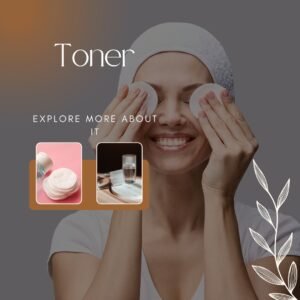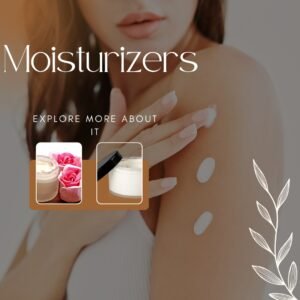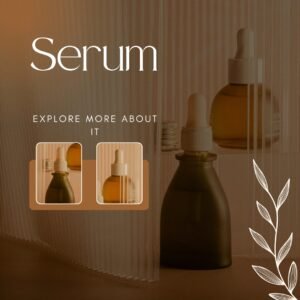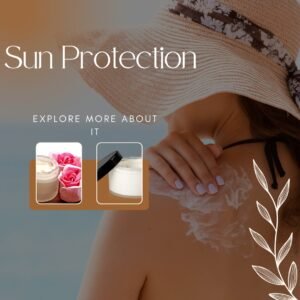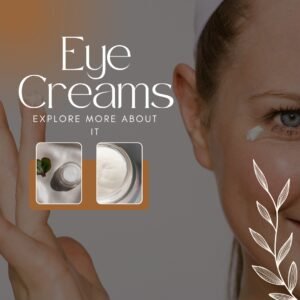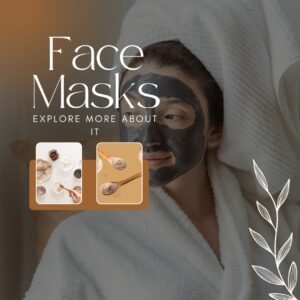Skincare Products for Every Routine: Complete Care
Welcome to Fashion Feier, your ultimate destination for all things beauty and skincare. Navigating the world of skincare can be overwhelming, especially with the plethora of products available today. At Fashion Feier, we aim to simplify this journey by guiding you through the essentials of a well-rounded skincare routine. In our in-depth guide, “Skincare Products for Every Routine,” we explore the must-have products that can transform your skincare regimen. Whether you’re starting your day or winding down for the night, the right products can make a significant difference in your skin’s health and appearance.
In the morning, it’s crucial to begin with a gentle cleanser that removes any overnight buildup without stripping your skin of its natural oils. Follow this with a hydrating toner to balance your skin’s pH and prepare it for the next steps. A potent serum, rich in antioxidants or hydrating ingredients, can then be applied to target specific skin concerns such as dullness or dehydration. Finally, a lightweight moisturizer followed by a broad-spectrum sunscreen will keep your skin protected and nourished throughout the day. These steps ensure that your skin remains resilient against environmental stressors and stays hydrated and glowing all day long.
The evening routine focuses on repair and rejuvenation. Start with a thorough cleanse to remove makeup, dirt, and impurities accumulated during the day. Using a toner can help to further cleanse and refresh the skin. Incorporate a serum that addresses nighttime skin needs, such as one with retinol or peptides, to promote cell turnover and collagen production. Finish with a rich, nourishing moisturizer or a night cream to lock in moisture and support the skin’s natural repair processes. At Fashion Feier, we believe that understanding and investing in these key skincare products can lead to healthier, more radiant skin. Join us as we explore these essential items, offering tips and recommendations to help you achieve your best skin yet.
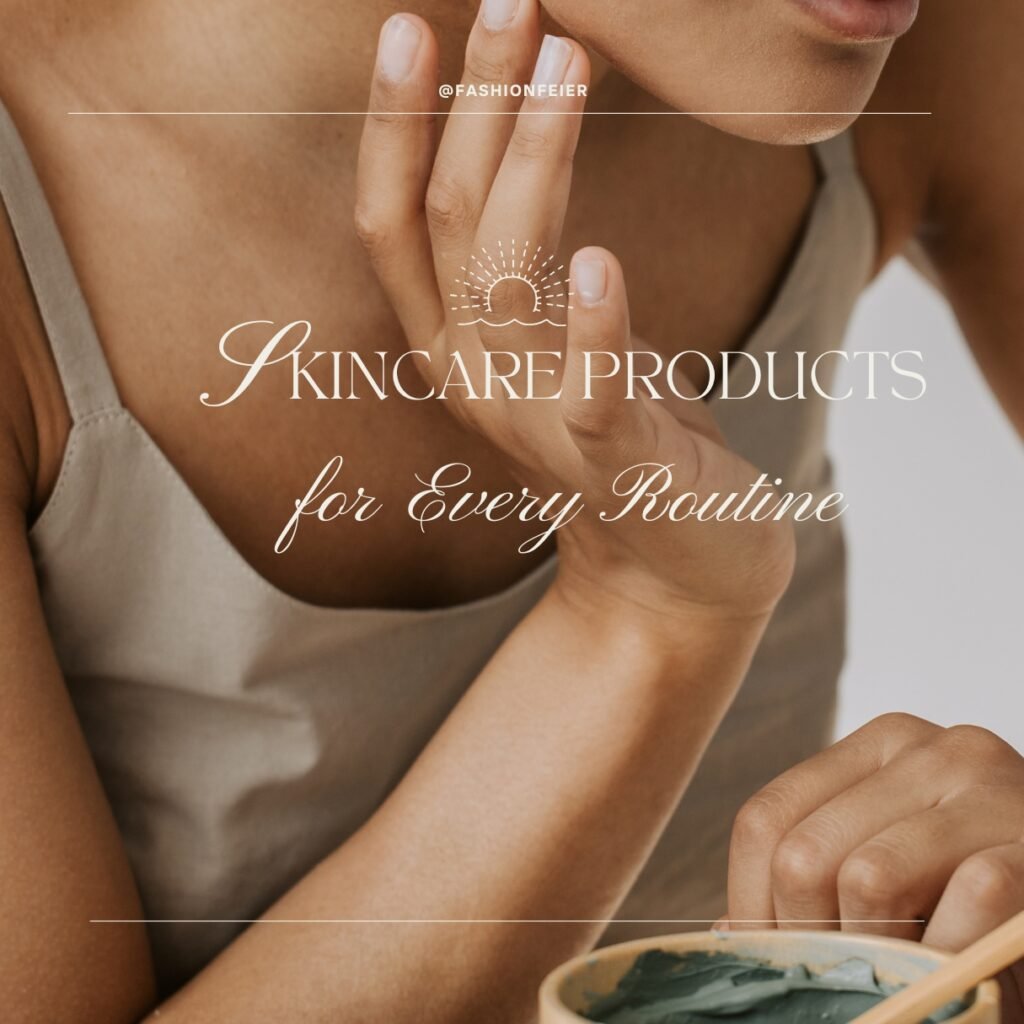
The Evolution of Skincare: From Ancient Practices to Modern Innovations
Skincare practices date back centuries, rooted in ancient civilizations where natural ingredients like botanical extracts and minerals were used for cleansing, moisturizing, and treating skin ailments. These early practices underscored the importance of Skincare Products for Every Routine not just for aesthetics but also for protecting skin health in challenging environments.
Today, the Skincare Products for Every Routine industry has burgeoned into a global market driven by research, technology, and consumer demand for tailored solutions. The array of products available—from cleansers and moisturizers to specialized treatments—reflects both the rich history and ongoing advancements in dermatological science. This evolution has democratized Skincare Products for Every Routine, making effective products accessible to a diverse audience seeking to enhance their skin’s health and appearance.
Understanding Skin Types and Concerns: Foundation for Effective Skincare
Central to crafting effective Skincare Products for Every Routine is understanding individual skin types and concerns. Skin types—ranging from normal and dry to oily, combination, and sensitive—guide the selection of appropriate products and routines. Each type requires specific care to maintain balance, address concerns, and achieve optimal skin health.
Identifying skin concerns—such as acne, aging signs, hyperpigmentation, or sensitivity—further refines product choices. This personalized approach ensures that Skincare Products for Every Routine not only meet immediate needs but also support long-term skin resilience and vitality.
Essential Skincare Products for Every Routine: Building Blocks for Healthy Skin
A foundational Skincare Product for Every Routine comprises several key steps designed to cleanse, treat, moisturize, and protect the skin. These steps form the basis for addressing daily skincare needs and nurturing skin health:
1. Cleansing: The initial step in any Skincare Product for Every Routine, cleansing removes impurities, excess oil, and debris accumulated throughout the day or night. Cleansers come in various formulations, including foams, gels, creams, oils, and micellar waters, each tailored to different skin types and needs. Effective cleansers contain ingredients that not only cleanse but also provide additional benefits, for example, salicylic acid targets acne-prone skin, while hydrating agents like glycerin and hyaluronic acid help maintain the skin’s moisture balance.

Proper cleansing prepares the skin for subsequent skincare steps, such as toning, moisturizing, and applying treatment serums, ensuring these products can penetrate more deeply and work more effectively. It’s recommended to cleanse the face twice daily—once in the morning to remove overnight accumulation of oils and once in the evening to wash away the day’s pollutants and makeup. Gentle, circular motions should be used during cleansing to avoid irritating the skin, and lukewarm water is ideal for rinsing to prevent stripping the skin of its natural oils. Regular cleansing leaves the skin feeling fresh, balanced, and ready to absorb the benefits of other skincare products.
2. Toning: Toning is a vital step in a comprehensive skincare routine, primarily focused on balancing the skin’s pH levels and preparing it for better absorption of subsequent products. Toners are typically liquid formulations enriched with ingredients like witch hazel, rose water, aloe vera, and various botanical extracts that help remove any remaining traces of makeup, dirt, and oil after cleansing. Beyond cleansing, toners also work to tighten and refine pores, reduce excess oil, and impart a refreshed, hydrated feeling to the skin.
Many modern toners contain additional active ingredients, such as antioxidants, exfoliants like alpha hydroxy acids (AHAs), and soothing agents that address specific skin concerns, ranging from acne and dullness to aging and sensitivity. To use a toner, it is generally applied with a cotton pad or directly with hands, gently patting it onto the skin. Incorporating toning into a daily skincare regimen can lead to a clearer, more radiant complexion and enhance the effectiveness of moisturizers and serums applied afterward.
3. Moisturizing: Moisturizing is an essential component of any skincare routine, aimed at maintaining skin hydration, enhancing barrier function, and providing protection against environmental aggressors. Moisturizers come in various forms, including creams, lotions, gels, and ointments, each suited for different skin types and concerns. Key ingredients in moisturizers often include humectants like glycerin and hyaluronic acid, which attract water to the skin; emollients such as shea butter and ceramides, which smooth and soften the skin; and occlusives like petrolatum and dimethicone, which form a protective layer to lock in moisture.
By keeping the skin hydrated, moisturizers help prevent dryness, flakiness, and irritation, and can also improve the appearance of fine lines and wrinkles. Regular use of a suitable moisturizer supports the skin’s natural barrier, aiding in the prevention of moisture loss and enhancing the skin’s resilience against external stressors like pollution and harsh weather conditions. For optimal results, moisturizers should be applied twice daily, morning and night, immediately after cleansing and toning, to ensure maximum absorption and effectiveness.
4. Treatment Serums: Treatment serums are concentrated skincare products designed to deliver potent active ingredients directly to the skin for targeted concerns such as aging, acne, hyperpigmentation, and hydration. These serums are typically lightweight and have a thin consistency, allowing for deeper penetration into the skin compared to creams or lotions. Common active ingredients in serums include hyaluronic acid for hydration, vitamin C for brightening and antioxidant protection, retinol for anti-aging and improving skin texture, niacinamide for reducing inflammation and improving skin elasticity, and salicylic acid for treating acne.
By incorporating these serums into a daily skincare routine, users can address specific skin issues more effectively and achieve visible results over time. It’s important to apply serums after cleansing and before moisturizing to ensure maximum absorption and efficacy. Integrating serums into Skincare Products for Every Routine enhances their efficacy by addressing specific issues more intensively than standard moisturizers or cleansers.
5. Sun Protection: Sun protection is a crucial element of skincare, essential for safeguarding the skin against the damaging effects of ultraviolet (UV) radiation from the sun. Sunscreens, available in forms like lotions, creams, gels, sprays, and sticks, utilize active ingredients such as zinc oxide, titanium dioxide, avobenzone, and octocrylene to either absorb, reflect, or scatter harmful UV rays. Broad-spectrum sunscreens offer comprehensive protection by shielding the skin from both UVA rays, which accelerate aging and contribute to skin cancer, and UVB rays, which cause sunburn.
Regular application of sun protection products not only prevents immediate damage like sunburn but also mitigates long-term risks such as premature aging, hyperpigmentation, and various types of skin cancer. Modern sunscreens often include additional skincare benefits, such as antioxidants and moisturizers, to provide enhanced skin care while protecting against sun exposure. For optimal effectiveness, sunscreen should be applied generously 15-30 minutes before sun exposure and reapplied every two hours, or more frequently if swimming or sweating. Consistent use of sun protection is vital for maintaining healthy, youthful skin and preventing sun-induced damage.
Advanced Skincare Products for Every Routine: Tailoring for Specific Needs
Beyond the essentials, advanced Skincare Products for Every Routine may incorporate additional steps or treatments to address specific concerns or achieve desired outcomes:
– Exfoliation: Exfoliation is a critical skincare process that involves the removal of dead skin cells from the surface of the skin, promoting a smoother, brighter, and more even complexion. There are two main types of exfoliation: physical and chemical. Physical exfoliation uses granular substances, such as sugar, salt, or microbeads, to manually slough off dead skin cells through gentle scrubbing.
Chemical exfoliation employs acids or enzymes, such as alpha hydroxy acids (AHAs), beta hydroxy acids (BHAs), or fruit enzymes, to dissolve the bonds between dead cells, allowing them to be shed naturally. Regular exfoliation helps to unclog pores, reduce the occurrence of acne, and enhance the absorption and effectiveness of other skincare products by removing the barrier of dead skin cells. It also stimulates cell turnover, which can improve skin texture and tone over time. However, it is important to exfoliate appropriately for one’s skin type and condition, as over-exfoliation can lead to irritation, sensitivity, and damage to the skin barrier. Typically, exfoliating one to three times a week is sufficient, and it should be followed by moisturizing to ensure the skin remains hydrated and protected.
– Eye Creams: Eye creams are specialized skincare products designed to address the delicate skin around the eyes, which is thinner and more prone to showing signs of aging and fatigue than other areas of the face. These creams are formulated with ingredients like peptides, retinol, hyaluronic acid, and antioxidants to target common issues such as fine lines, wrinkles, puffiness, and dark circles. Peptides help stimulate collagen production, improving skin elasticity and reducing the appearance of wrinkles.
Retinol aids in cell turnover, smoothing out fine lines, while hyaluronic acid provides deep hydration, plumping the skin and reducing dryness. Antioxidants protect against environmental damage and oxidative stress, further helping to maintain a youthful appearance. Eye creams are typically applied with a gentle tapping motion using the ring finger, which exerts the least pressure, ensuring the sensitive skin around the eyes is not tugged or stretched. Regular use of eye creams can result in a brighter, firmer, and more rejuvenated eye area, making them an essential part of a comprehensive skincare routine.
– Face Masks: Face masks are a versatile and intensive skincare treatment designed to address various skin concerns by delivering a concentrated dose of active ingredients. They come in different forms, such as sheet masks, clay masks, gel masks, and cream masks, each tailored to specific skin needs. For instance, clay masks are ideal for oily and acne-prone skin as they absorb excess oil and unclog pores while hydrating masks with ingredients like hyaluronic acid and aloe vera provide deep moisture for dehydrated skin. Masks containing antioxidants, such as vitamin C and green tea extract, can help brighten the complexion and combat free radical damage.
Some masks are designed to exfoliate, using ingredients like alpha hydroxy acids (AHAs) or beta hydroxy acids (BHAs) to remove dead skin cells and promote a smoother, more radiant skin surface. Face masks are typically used once or twice a week, applied to clean skin, and left on for a specified period before rinsing off or peeling away. Incorporating face masks into a skincare routine can enhance overall skin health, leaving it refreshed, revitalized, and better prepared to absorb the benefits of other skincare products. Weekly or as-needed use of masks enhances Skincare Products for Every Routine, providing visible results and a revitalized complexion.
Embracing Personalization and Consistency for Optimal Results
Navigating the diverse landscape of Skincare Products for Every Routine involves personalization and consistency—adapting routines to individual needs and adhering to them diligently over time. Experimenting with different formulations, observing skin responses, and adjusting routines as necessary foster continuous improvement in skin health and appearance.
Skincare is not merely a cosmetic endeavor but a holistic practice promoting self-care and confidence. By understanding the roles of Skincare Products for Every Routine, identifying unique skin types and concerns, and crafting tailored routines, individuals cultivate healthier, more radiant skin that reflects inner vitality. Embracing Skincare Products for Every Routine as a journey—rooted in science, enriched by innovation, and personalized to individual preferences—empowers individuals to nurture their skin and embrace the beauty of self-care.
Conclusion: Embracing the Art and Science of Skincare Products for Every Routine
In the pursuit of healthy, radiant skin, Skincare Products for Every Routine transcends routine—it becomes a journey of self-discovery and care. Throughout history, skincare practices have evolved from ancient rituals rooted in natural remedies to today’s sophisticated formulations driven by scientific research and innovation. This evolution underscores not only our enduring fascination with beauty but also our commitment to nurturing skin health in a complex world.
FAQ About Skincare Products for Every Routine
At its simplest, your morning skincare routine should include a gentle cleanser, moisturizer, and sunscreen. At night, cleanse and moisturize. As needed, incorporate toners, serums, treatments, retinol, and oils tailored to your skin type.
A good skincare routine typically includes a gentle cleanser to remove dirt and impurities, a moisturizer to hydrate the skin, and sunscreen for daily sun protection. Adding specialized products like toners, serums, and treatments can address specific concerns such as acne, aging, or hyperpigmentation. It's essential to choose products suitable for your skin type and concerns, and consistency is key to achieving healthy, radiant skin.
Cleanse properly by selecting a gentle cleanser tailored to your skin type—whether dry, oily, or combination—to effectively remove dirt, oil, and makeup while preserving natural oils. Regular exfoliation is crucial for eliminating dead skin cells, and promoting improved absorption of skincare treatments. Opt for a mild exfoliator and incorporate it into your routine 1-3 times per week for optimal results.
A full skincare routine involves cleansing with a suitable cleanser, toning to balance pH, applying targeted serums or treatments, moisturizing for hydration, and using sunscreen daily for protection. This routine helps maintain healthy and radiant skin by addressing cleansing, nourishing, and protective needs. What Products Should be in Every Skincare Routine?
What do I Need for a Good Skincare Routine?
What is a Daily Routine for Glowing Skin?
What is a Full Skin Routine?
